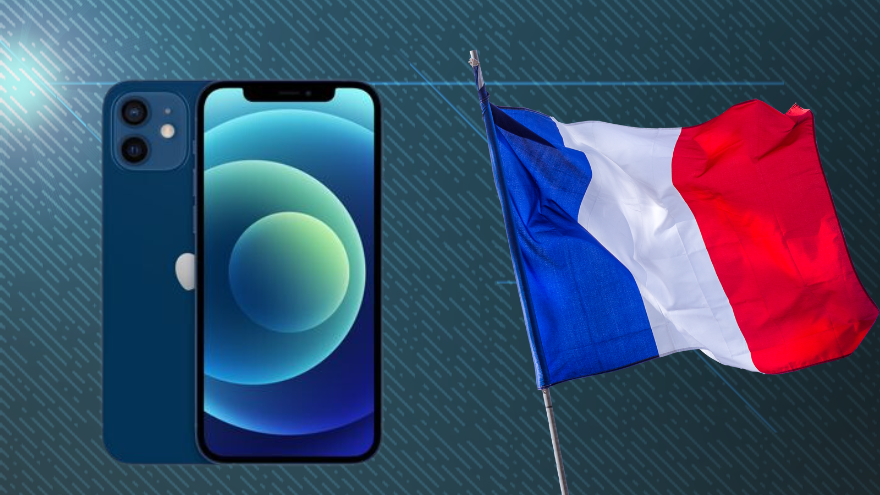A French regulatory agency ordered Apple to stop selling the iPhone 12 due to concerns about radiation.
The ANFR, a radiation watchdog group, has called for a recall of every iPhone 12 sold in France if the company does not update the phone’s software. The agency says the model, which has been on sale since September 2020, has a Specific Absorption Rate above the legal limit.
"Apple is expected to respond within two weeks", said France’s Digital Minister Jean-Noel Barrot in a statement, per Reuters. "If they fail to do so, I am prepared to order a recall of all iPhones 12 in circulation. The rule is the same for everyone, including the digital giants."
According to France 24, the ANFR became concerned after accredited labs found “absorption of electromagnetic energy by the body at 5.74 watts per kilogram during tests simulating when the phone was being held in the hand or kept in a pocket.”
The agency noted that the iPhone 12’s electromagnetic radiation absorption, when measured at a distance of five centimeters, was lower than the 2.0 watts per kilogram recommendation.
Europe set the maximum acceptable Specific Absorption Rate at 4.0 watts per kilogram.
ANFR’s announcement coincided with Apple’s unveiling of its latest iPhone – the iPhone 15. The company had already planned to stop selling the iPhone 12 anywhere. The stop-sale order would be applied to the residual stock still available in France through third-party retailers and carriers.
The ANFR’s directive “could be extended to the European Union as the ANFR has transmitted its findings to similar governing bodies across the continent,” reports Android Authority. “The minimum threshold for impacting the human body in any way is supposed to be 40 W/kg, which is many scales ahead of the regulatory limit.”
In the United States, the Federal Communications Commission set the Specific Absorption Rate limit at 1.6 watts per kilogram.
“Many people mistakenly assume that using a cell phone with a lower reported SAR value necessarily decreases a user’s exposure to RF emissions, or is somehow ‘safer’ than using a cell phone with a high SAR value,” noted the FCC. “While SAR values are an important tool in judging the maximum possible exposure to RF energy from a particular model of cell phone, a single SAR value does not provide sufficient information about the amount of RF exposure under typical usage conditions to reliably compare individual cell phone models.”
“Rather, the SAR values collected by the FCC are intended only to ensure that the cell phone does not exceed the FCC’s maximum permissible exposure levels even when operating in conditions which result in the device’s highest possible – but not it's typical - RF energy absorption for a user,” per the agency.

